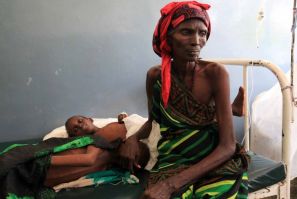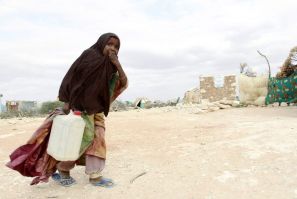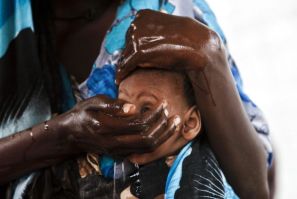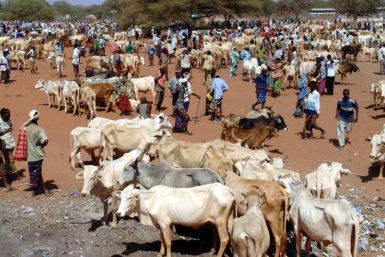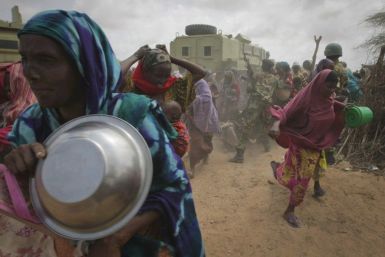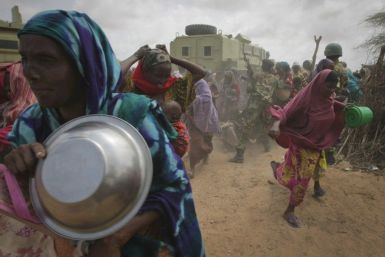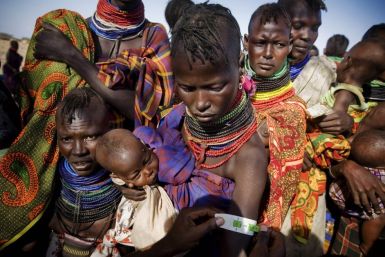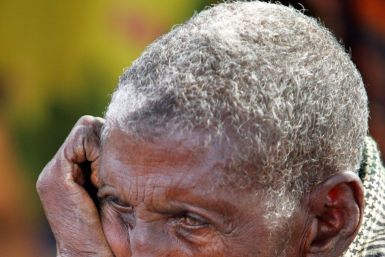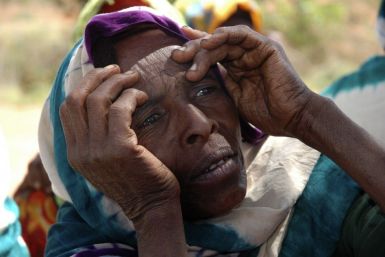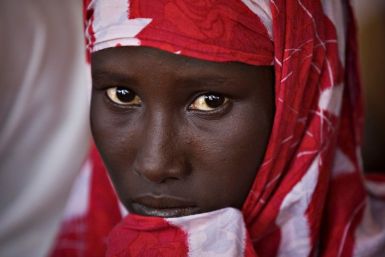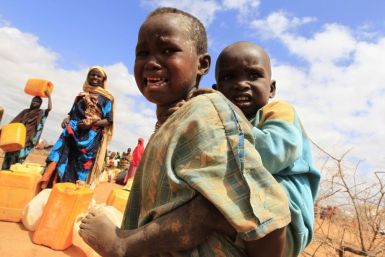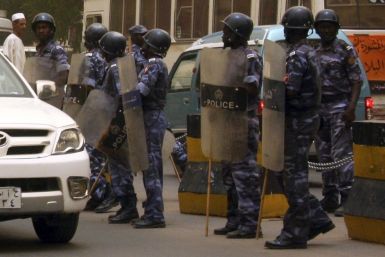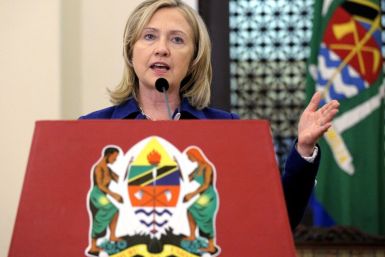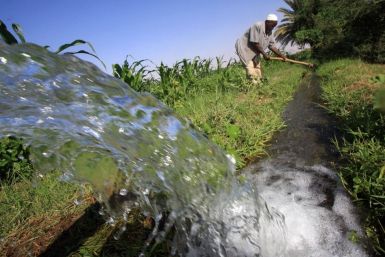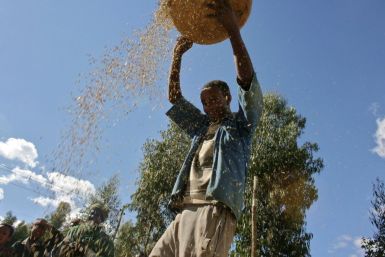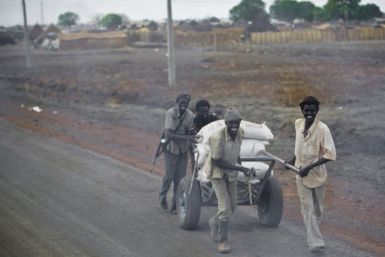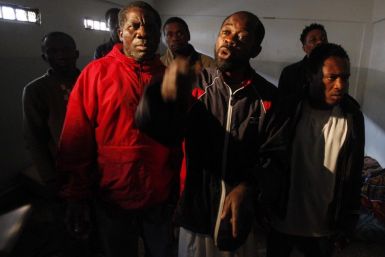The worst drought in 60 years in the Horn of Africa has sparked a severe food crisis and high malnutrition rates, with parts of Kenya and Somalia experiencing pre-famine conditions, according to a United Nations report.
The United Nations Secretary General Ban Ki-moon on Monday said long-term efforts to boost food security in the Horn of Africa must accompany the emergency aid to those affected by the drought-related hunger.
Islamist extremist group Al-Shabab has said that international agencies it had banned from its territory would not be allowed to return to help the Somali population with aid for the famine.
The UN declared on Wednesday that famine now exists in two regions of southern Somalia, which have the highest malnutrition rates in the world. You can help by donating time and money to worldwide organizations like UNICEF, The Red Cross and the World Food Program (WFP), or through Facebook and Twitter.
The United Nations has officially declared that there is a famine in Somalia.
Millions of people across Somalia are suffering from drought and famine, but you can help by donating to aid agencies working to bring supplies to the Horn of Africa.
With no improvement in the overall food security conditions expected before early 2012, about a million of children in drought-ridden Horn of Africa are at the risk of dying from malnourishment.
The United Nations has reported that measles outbreaks in Ethiopia and Kenya have killed dozens of children and sickened thousands of others. Measles are spread through contact with droplets from the nose, mouth, or throat of an infected person and symptoms include bloodshot eyes, cough, fever, light sensitivity, muscle pain, and rash.
The United Nations has reported that measles outbreaks in Ethiopia and Kenya have killed dozens of children and sickened thousands of others. UNICEF spokeswoman Marixie Mercado said today that at least 17,584 measles cases were reported by Ethiopian officials in the first half of the year. The outbreaks have results in 114 deaths.
Around 10 million people total in the Horn of Africa will need food aid as a result of a massive drought.
Britain has pledged to offer £38-million ($61-million) to Ethiopia in order to feed more than one million people who have been devastated by a severe drought.
UN refugee camps are at capacity all over eastern Africa. But Somalis keep fleeing their country headed to Kenya, Ethiopia and elsewhere.
Kenya has witnessed a dramatic rise in the number of Somali refugees fleeing that country’s endless wars and, now, the worst drought in six decades, according to humanitarian groups.
To celebrate World Refugee Day on June 20, Jolie traveled from Malta to the Italian island of Lampedusa to tour the temporary camps with the UN's High Commissioner for Refugees.
Presidents of the soon-to-be-independent nations met in Ethiopia to discuss the occupied area of Abyei.
Secretary of State Hillary Clinton urged African leaders to halt their support for besieged Libyan leader Muammar Gaddafi lest they find themselves on the wrong side of history in a speech at the African Union's headquarters in Addis Ababa, Ethiopia.
Some prominent American universities and pension funds, among other wealthy foreign investors, are allegedly purchasing huge tracts of land in Africa -- acts that may lead to the eviction of thousands of local farmers, according to a study by the Oakland Institute (Oakland Institute), a California-based think tank.
A US agency has warned the eastern Horn of Africa of continuing food security crisis, a local media report said.They say, it is the 'World's worst food security crisis'.
For every pair of glasses purchased, someone in a developing country will receive vision care
Ethiopia will consider dispatching peacekeepers to the disputed border area of Abyei between north and south Sudan if both Juba and Khartoum lodge a request, an official said on Tuesday.
United States secretary of state Hillary Clinton will attend an international meeting next week to talk about the situation in Libya, as NATO seeks to accelerate the campaign to end his rule.
Non-Libyan Africans are reportedly becoming the target of revenge killings in Libya, owing to the perception that foreigners form a large part of Moammar Gaddafi’s mercenary force paid to kill anti-government protesters,



